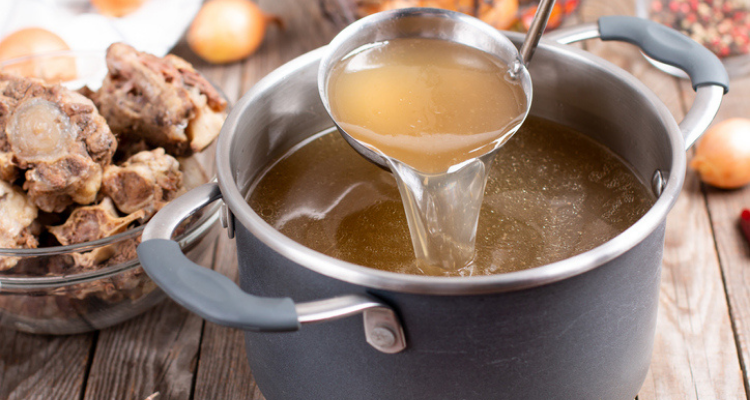-2.png?width=750&height=400&name=Untitled%20design%20(5)-2.png)
Turmeric has a reputation for being one of the most powerful immune boosters around—but due to its wide range of health benefits, many integrative medicine experts now put sulforaphane in the same league.*
A phytochemical found in cruciferous vegetables like kale, broccoli, cabbage, cauliflower, and Brussels sprouts, sulforaphane supports gastrointestinal function, heart health, and boosts immunity.* Recent investigations have also discovered its ability to benefit brain development in children by inhibiting oxidative stress, among other mechanisms.*
While some of its effects are similar to those of turmeric, sulforaphane might just be taking the lead when it comes to brain health.*
What is Sulforaphane (Broccoli Sprout Extract)?
Sulforaphane is a sulfur-rich plant compound within the isothiocyanate group of organosulfur compounds, linked to an impressive list of health benefits.* Its inactive form, glucoraphanin, activates when it comes into contact with myrosinase, a group of plant enzymes. Myrosinase is specifically released to defend plants, so cruciferous vegetables must be chopped or chewed to release this enzyme and activate sulforaphane.
Cruciferous vegetables in their raw form seem to be highest in sulforaphane, although lightly steaming vegetables for a few minutes also maintains high levels. Extensive current research is revealing exciting developments on sulforaphane’s role in brain health and development, along with the following four benefits for overall health and wellbeing.*

3 Health Benefits of Sulforaphane
The following benefits of sulforaphane apply to adults and children alike:
Supports Proper Digestion*
Likely due to the compound indolocarbazole, which promotes a balanced gut and immune system, sulforaphane seems to help maintain gut lining integrity and prevent unwanted particles from entering the bloodstream.*[1] By helping to support a healthy gut lining, sulforaphane promotes proper digestion, assimilation, and absorption of nutrients.*
Promotes the Reduction of Toxins and Free Radicals*
Excessive free radicals are toxic to cells and can negatively impact mitochondrial function.* Sulforaphane boosts the body’s natural detoxification systems and pathways, which is why it’s been used by doctors as part of a comprehensive immune support regimen.*[2]
Supports Healthy Blood Vessel Formation*
Studies suggest that sulforaphane might switch on a protective protein called Nrf2, which plays a role in protecting arteries from fatty plaque build-up.*[3]
Sulforaphane and the Brain
Not only does sulforaphane show promising general health benefits—but it also demonstrates encouraging possibilities for protecting and promoting overall healthy brain cell and neurological development in children.*
Inhibits Oxidative Stress*
Optimal brain health, proper cell growth, and cell function play a major role in controlling free radicals in the brain. Certain developmental differences have a potential link to differences in oxidative function, and sulforaphane could support healthy social interaction and verbal communication by increasing antioxidant protection.*[4]
Passes Through the Blood-Brain Barrier
The blood-brain barrier is highly selective about which substances are allowed to cross into the brain from the bloodstream.* Sulforaphane is able to cross this barrier, which is why it can help protect the brain with cytoprotective enzymes.*[5]
Helps to Stabilize Glutathione Levels*
Certain neurological differences in children have been linked with low glutathione levels and inflammatory response. Glutathione is crucial to free-radical fighting capacity, oxidative metabolism, and intracellular defense, and it works to stabilize glutathione levels in the brain.*
Foods and Supplementation
The best way to maintain healthy sulforaphane levels is by regularly eating cruciferous vegetables like kale, Brussels sprouts, arugula, cabbage, broccoli, cauliflower, collard greens, and bok choy in their raw or lightly steamed form. For children, consider combining these vegetables into a smoothie, or experimenting with different kid-friendly preparation methods.
Liposomal broccoli sprout extract is an excellent supplementation method for children, as it allows for maximum absorption and metered dosing. Liposomal sulforaphane for adults is also a highly effective delivery method, leading to optimal efficacy and absorption.
Conclusion
Doctors and parents alike have touted the brain-boosting benefits of eating your (cruciferous) vegetables, and now we understand why.
In order to promote healthy cell growth and brain development in children, it’s foundational for cells to be in an optimal metabolic state, while at the same time lessening factors that adversely impact cell development like free radical damage, toxic environments, and cerebral inflammatory response. By using compounds like sulforaphane that support these mechanisms, brain health, development, and function will show significant health benefits.*

[1] He C, Huang L, Lei P, Liu X, Li B, Shan Y. Sulforaphane Normalizes Intestinal Flora and Enhances Gut Barrier in Mice with BBN-Induced Bladder ... Mol Nutr Food Res. 2018 Dec;62(24):e1800427. doi: 10.1002/mnfr.201800427. Epub 2018 Nov 22. PMID: 30302904.
[2] Sestili, P., & Fimognari, C. (2015). Cytotoxic and Antitumor Activity of Sulforaphane: The Role of Reactive Oxygen Species. BioMed research international, 2015, 402386. https://doi.org/10.1155/2015/402386
[3] Evans P. C. (2011). The influence of sulforaphane on vascular health and its relevance to nutritional approaches to prevent cardiovascular .... The EPMA journal, 2(1), 9–14. https://doi.org/10.1007/s13167-011-0064-3
[4] Singh K, Connors SL, Macklin EA, Smith KD, Fahey JW, Talalay P, Zimmerman AW. Sulforaphane treatment of ...). Proc Natl Acad Sci U S A. 2014 Oct 28;111(43):15550-5. doi: 10.1073/pnas.1416940111. Epub 2014 Oct 13. PMID: 25313065; PMCID: PMC4217462.
[5] Sun, Y., Yang, T., Mao, L., & Zhang, F. (2017). Sulforaphane Protects against ...: Roles of Cytoprotective Enzymes. Austin journal of cerebrovascular ..., 4(1), 1054. https://doi.org/10.26420/austinjcerebrovascdisstroke.2017.1054







-2.png?width=750&height=400&name=Untitled%20design%20(5)-2.png)










